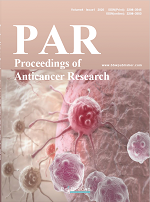Abstract
Objectives: To study the related factors of acute kidney injury (AKI) in intensive care unit (ICU) patients. Methods: The clinical data of 879 patients in the intensive care unit were retrospectively analyzed. AKI patients were selected according to the AKI clinical diagnostic criteria, the causal analysis was performed, the indicators of AKI patients were tested, and the urine volume and the time of admission to the ICU were recorded. Finally, logistic regression analysis was used to analyze the risk factors that affect the prognosis. Results: Among the 879 patients in the intensive care unit, 96 patients (10.9%) met the KDIGO-AKI diagnostic criteria, of which 29 (30.31%) died and 49 (51.04%) required renal replacement therapy. As the age and stage of AKI patients increase, the mortality rate also increases. The pathology constituted 46 septic patients (47.92%) and 50 non-septic patients (52.08%). Patients with septic AKI have longer ICU and hospital stay than patients with non-septic AKI (t=2.291, 0.023; t=2.082, 0.041), and the rate of renal replacement therapy is higher(?2=4.091?P=0.042). Logistic regression analysis shows that old age, low urine volume, shock, acidosis, stage 3 of AKI, intake of blood pressure drugs, infections, and the need for renal replacement therapy are relevant factors that affect AKI. Conclusions: In the intensive care unit, the incidence and mortality of AKI are very high; the treatment of AKI is related to many factors; early detection and treatment is very crucial to reduce the mortality of AKI.
